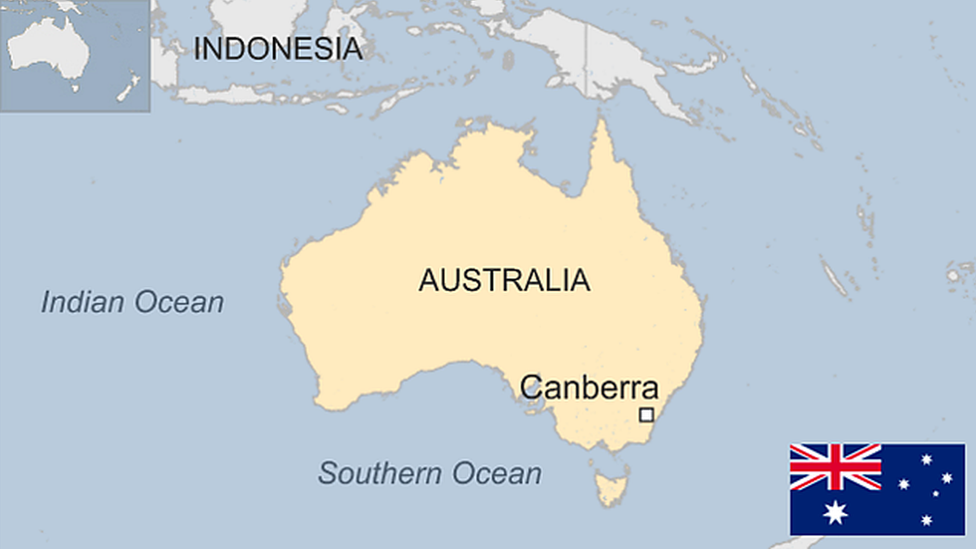Former Australian PM Gough Whitlam dies at 98
- Published
Jon Donnison: "Gough Whitlam was best known for the manner in which he left office"
Former Australian Prime Minister Gough Whitlam has died at the age of 98.
He was credited with transforming Australian society in the 1970s after 23 years of conservative government, introducing many far-reaching reforms.
But his government was plagued by resignations and the governor-general dismissed it after just three years.
Prime Minister Tony Abbott described , externalMr Whitlam as a "giant of his time" and said flags across Australia would fly at half-mast on Tuesday.
In a statement, Mr Whitlam's family said he was an "inspiration to us and our families and for millions of Australians".
Mr Whitlam's reforms included introducing free university education, abolishing the death penalty and allowing non-white immigrants into Australia.


Wendy Frew, Australia editor, BBC Online
It is difficult to overestimate the influence of Gough Whitlam on the Australian political and civic landscape.
A giant both physically and politically, his vision for a modern Australia was loved and loathed in almost equal measure. He spent less than three years in office but much of the legacy of his government's reforms remains today.
His achievements range from those on the international stage - he was one of the early few to openly advocate for Australian and international recognition of communist China - to the more pedestrian such as connecting all houses in Australia's capital cities to sewerage.
Along the way, his government managed to shake-up conservative, white Australia by reforming family law, moving to equal pay for women and starting what would turn out to be a very long process of entrenching in law Aboriginal land rights.
He tackled the nation's cultural cringe too by introducing Australia's own honours system and introducing free access to universities, which saw a wave of people become the first in their families to receive higher education.

Mr Whitlam was also the first Australian leader to visit China, establishing diplomatic relations with what is now Australia's largest trading partner. Mr Abbott said this was "an enduring legacy".
"He united the Australian Labor Party, won two elections and seemed, in so many ways, larger than life," Mr Abbott added, while also acknowledging the role played by his wife, Margaret Whitlam.
Opposition leader Bill Shorten echoed Mr Abbott's comments, saying: "I think it is fair to say, regardless of one's politics, the nation has lost a legend."
"Gough Whitlam redefined our country and in doing so he changed the lives of a generation," Mr Shorten added.


Recent former prime ministers also paid tribute, with Julia Gillard, external calling Mr Whitlam "a giant of his era" and Kevin Rudd, external saying he was "an extraordinary political leader, an exemplar to us all".
Communications Minister Malcolm Turnbull, who was Mr Whitlam's MP, called him a "big man with a big vision for a big country".
While Mr Whitlam's decisions, including his economic agenda, were controversial, "all of that recedes... What people remember of Gough Whitlam is a bigness, a generosity, an enormous optimism for Australia, and that is something we can all subscribe to," he said in parliament., external
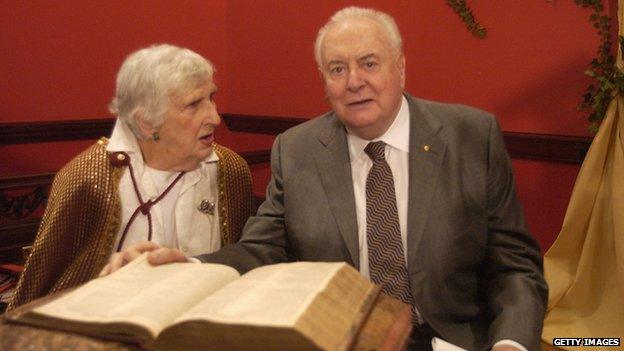
PM Tony Abbott said Gough and Margaret Whitlam had together "made a difference to our country"
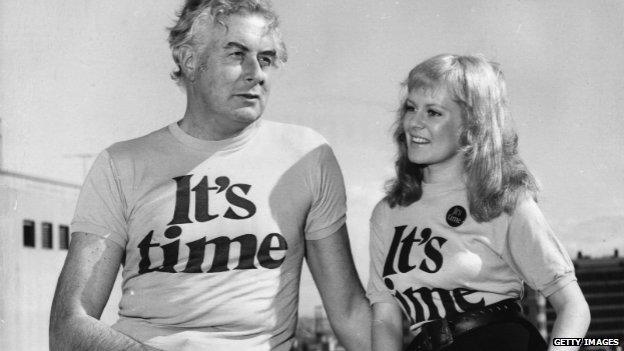
Mr Whitlam and Australian singer Little Pattie, wearing election slogan T-shirts during the 1972 campaign
Mr Whitlam led Labor to its historic victory in December 1972 on the back of the famous "It's Time" campaign to move on from a post-war period of social conservatism.
His dismissal was prompted by a refusal by parliament's upper house, where Labor did not hold a majority, to pass a budget bill.
To end the crisis, Governor-General Sir John Kerr dismissed Mr Whitlam in 1975 and installed opposition leader Malcolm Fraser as the caretaker prime minister.
He remains the country's only prime minister to have been sacked.
Mr Fraser tweeted, external on Tuesday that Mr Whitlam was "a great Australian".
After leaving politics, Mr Whitlam served as a Unesco ambassador, academic and after-dinner speaker and regularly appeared at Labor Party functions.
He had four children with his wife, Margaret, during a marriage that lasted 70 years until her death in 2012 at the age of 92.
His family said there would be a private cremation and a public memorial service.
- Published21 October 2014
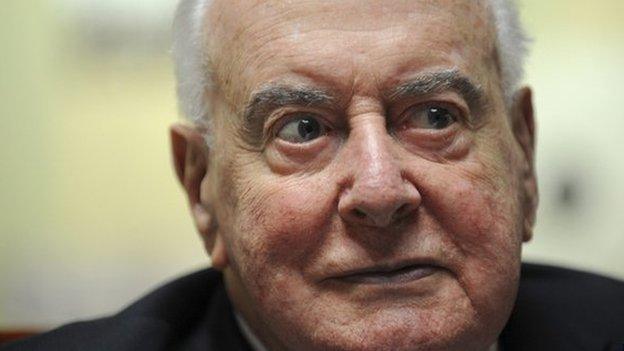
- Published21 October 2014
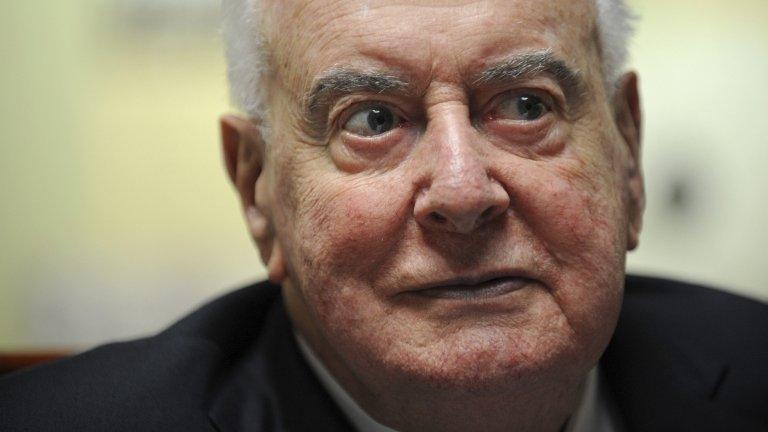
- Published20 October 2014
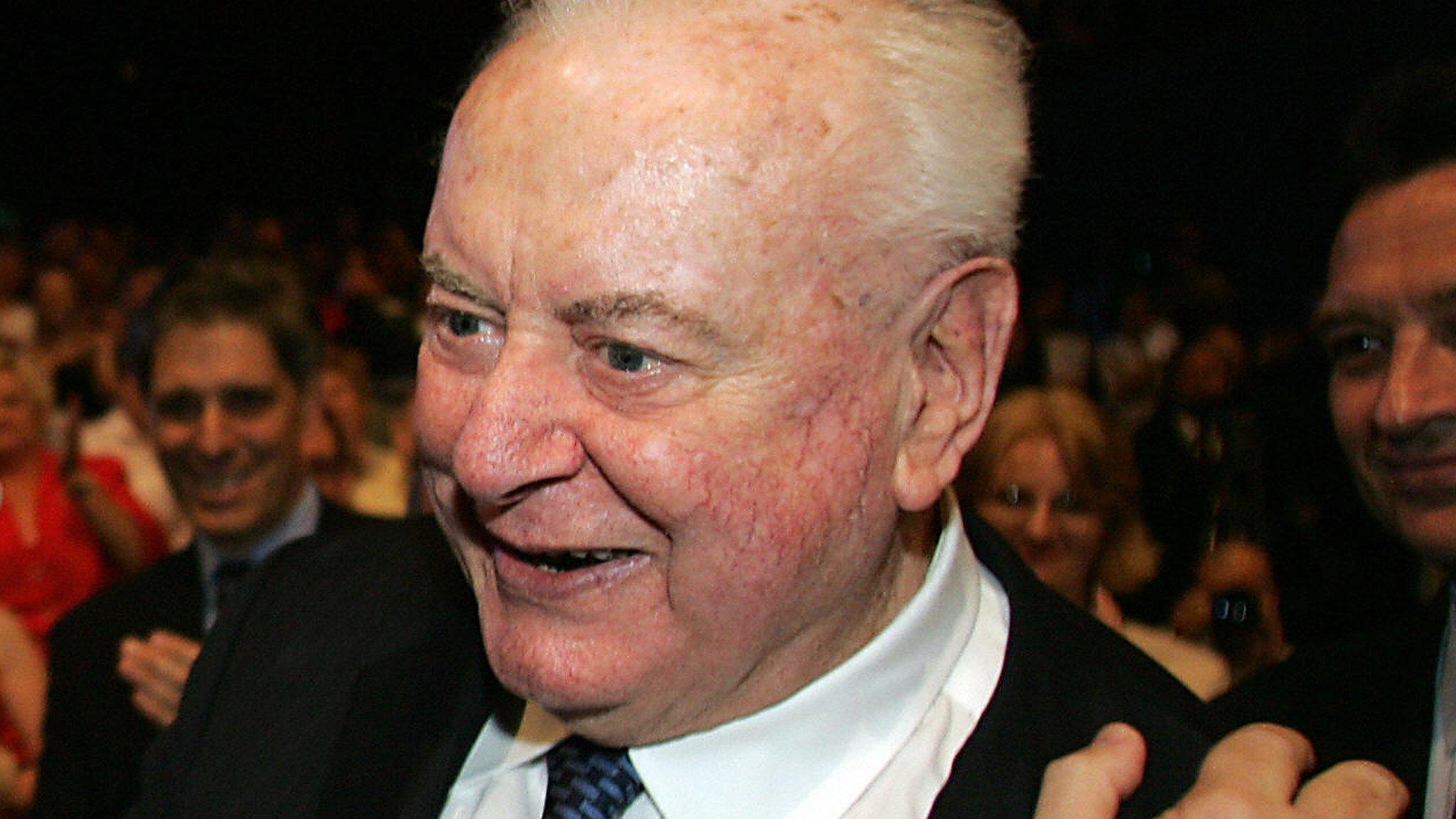
- Published20 October 2014

- Published14 April 2023
